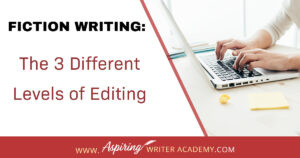How to Use Framing Techniques in Your Fictional Novel
The term ‘Framing’ or using ‘Bookends’ refers to a technique in novel writing where the author creates similar passages at the start and finish of a story, or individual chapter or scene. Similar, but different. It is the tiny changes that give your story that exciting twist, satisfying closure, or added meaning.
In How to Use Framing Technique in Your Fictional Novel, we show you how to use framing on three levels to improve your writing skills, enhance your story, and thrill readers.
How to Delete Dialogue Tags (He said /She said) in Fiction Writing
The goal of writing a fictional novel is to give your readers a unique, emotional experience. However, if there are too many clunky dialogue tag interruptions meant to identify which character is speaking, the reader may become frustrated and put the book down.
In our post, How to Delete Dialogue Tags (He said / She said) in Fiction Writing, you will learn various methods to make the verbal exchanges in your writing smoother, stronger, and more engaging for the reader.
How to Manipulate Pacing to Increase the Intensity of Your Scenes in a Fictional Novel
Are there sections in your story that are moving too slow? Do you feel like your scenes are not climatic enough? With the right techniques, you can use pacing to slow a story down or to speed a story up, depending on what is required for each scene. What you do not want, is to have the wrong pacing at the wrong time.
Follow along as we show you How to Manipulate Pacing to Increase the Intensity of Your Scenes in a Fictional Novel to help you write a novel that your reader can not put down.
Fiction Writing: The 3 Different Levels of Editing
What is the best way to edit a manuscript? Do you even know where to start? Are you familiar with the difference between revisions, line edits, and copy edits?
In our post, Fiction Writing: 3 Levels of Editing Your Story, we discuss the various phases of editing with checklists to help you get started so you can make your novel the best it can be!
5 Reasons Your Writing Sucks! (And How to Fix It)
Have you submitted your manuscript to multiple publishing houses only to receive a slew of rejections? Have the reviewers of your self-published book been less than kind? Do your critique partners suggest your story needs help but do not offer any suggestions on how to fix the problem?
In our post, 5 Reasons Your Writing Sucks! (And How to Fix It), we help you identify areas that may be weak, and list the steps you can take to make your story better.
Novel Writing Tips: Don’t Bury the Dialogue!
When writing the first draft of a fictional novel, authors may write fast, without giving much thought to format or style issues when it comes to dialogue. However, during the revision phase, it is important to look at each line to ensure the conversations between characters have the greatest impression upon readers.
In Novel Writing Tips: Don’t Bury the Dialogue! we show you how to make your character’s speech stand out for clarity, maximum impact, and stylistic effect.
Fiction Writing: Critique Group Etiquette & Warning Signs of a Good Group Gone Bad
Are you looking to join a critique group and wonder if it will be the right fit for you?
Or have you been in a critique group for a while, but doubt whether the feedback is helpful?
Worse, are you a writer who has suddenly found themselves stuck in a toxic critique group due to changes within the group dynamic?
In Fiction Writing: Critique Group Etiquette & Warning Signs of a Good Group Gone Bad, we discuss the good, the bad, and the ugly to help you get the best feedback on your work.
Fiction Writing: How to Find a Critique Partner/Group
Do you have someone you trust to critique your work and give you valuable feedback? Someone who can point out inconsistencies with point-of-view, make suggestions for plot points, and offer tips to strengthen character motivation?
In our post, Fiction Writing: How to Find a Critique Partner/Group, we discuss how to connect with others, various ways a critique group can be run, and other considerations to ensure you bring out the best in each other’s writing!
Creative Writing: 5 Ways to Strengthen a Weak Fictional Character
Do you have trouble writing strong fictional characters?
Perhaps you have been told that your protagonist or antagonist or a sub-character is weak, that they need more motivation. Perhaps the character doesn’t have a strong enough story goal, or enough personality or maybe the character isn’t actively driving the story forward.
How can you “fix” a weak character and make him worthy? Follow along as we discuss, Creative Writing: 5 Ways to Strengthen a Weak Fictional Character in the post below.
12 Quick Tips to Write Dazzling Dialogue
Dialogue can be challenging to write. It takes time and practice to craft conversations that are believable, meaningful, serve to push the plot forward, and hold the attention of the reader. To help you improve your craft of fiction writing and make your character’s lines sparkle, we have created a list of 12 Quick Tips to Write Dazzling Dialogue.











